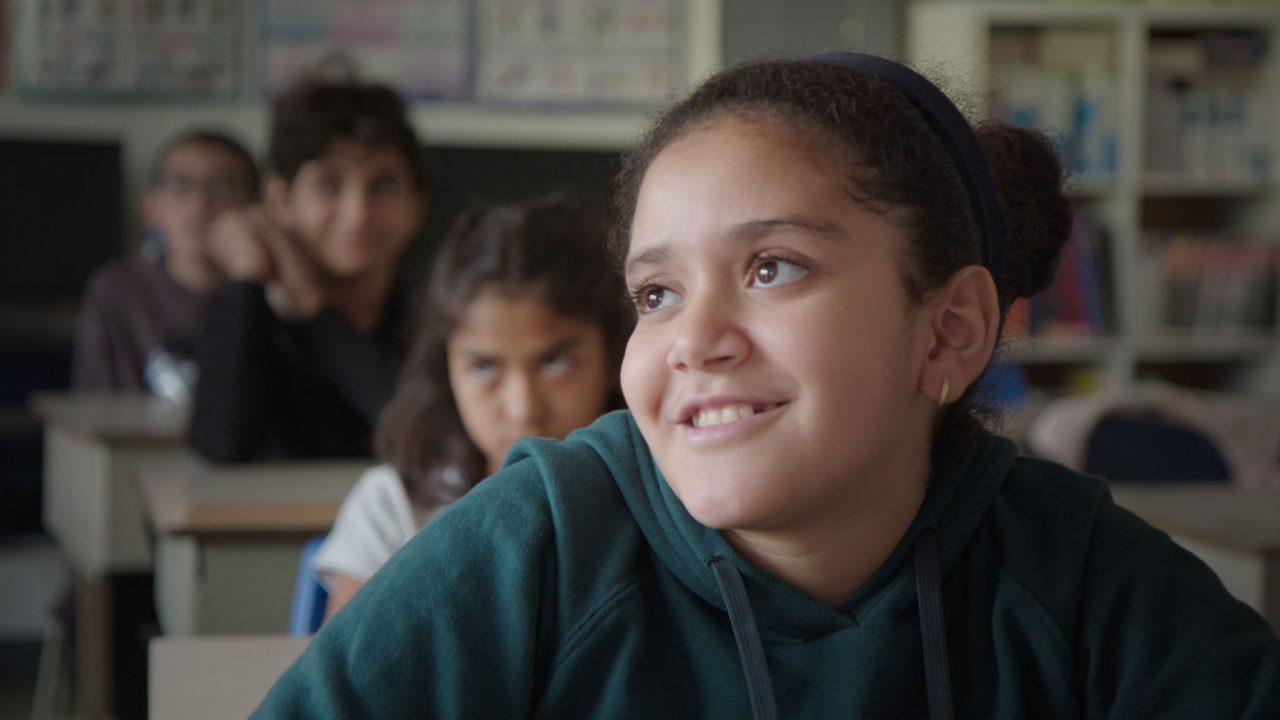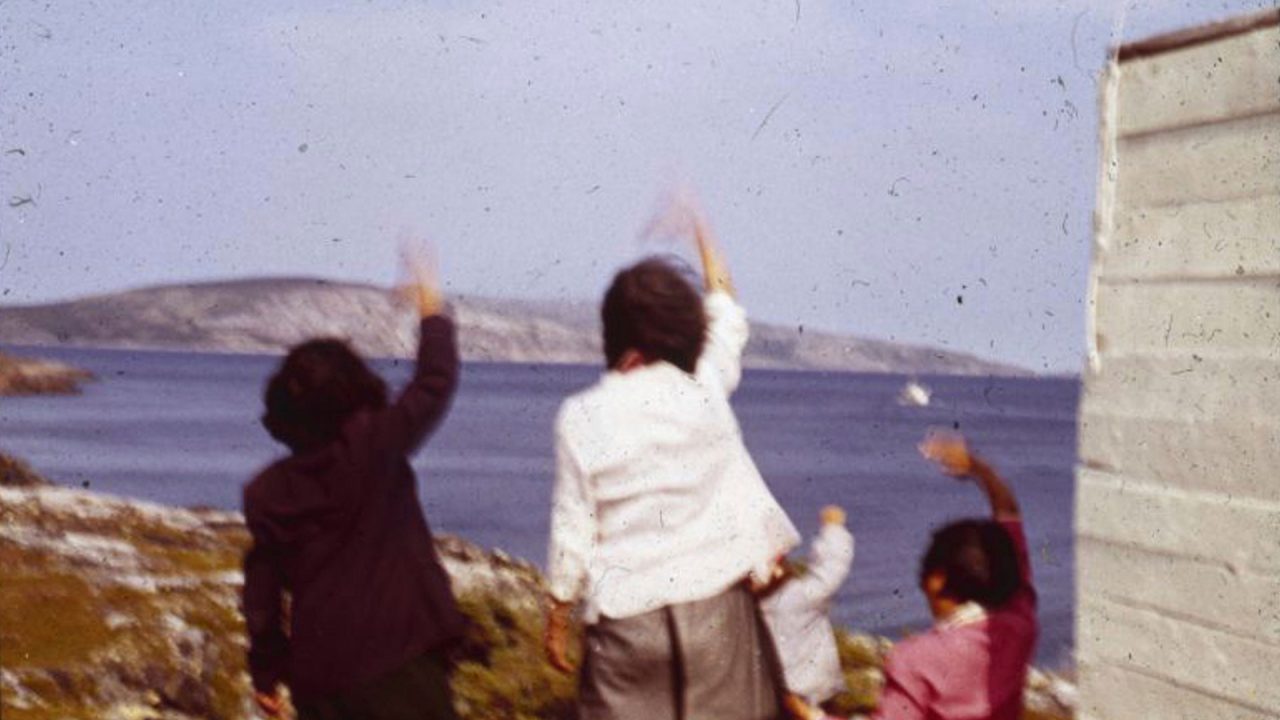
Mini-Lesson for Unspoken Tears (Primary)
Mini-Lesson for Unspoken Tears (Primary)
Mini-Lesson for Unspoken Tears (Primary)
School Subjects:
- Art Education: Art, Music
- Physical Education: Safety, Fair Play
- History and Citizenship Education: Issues in Society Today
- Health and Personal Development: Identity, Mental Health
Ages: 9-11
Warnings: The mini-lesson and the video clips included in this lesson are designed for students between the ages of 9 and 11. The full film, Unspoken Tears, is not suitable for students under the age of 14 as there are descriptions of violence. It is important to approach difficult topics with care and sensitivity in the classroom. Teachers should assess how to deal with these difficult topics with their students. There may be some content in the film that could trigger a past traumatic experience. It is therefore imperative that a list of resources is made available to students easily and confidentially. The presence of a social worker in the classroom is recommended.
Unspoken Tears – Areski (Clip), , provided by the National Film Board of Canada
Keywords/ Topics: Empathy, Identity, Culture, Refugee, Migrant
Overarching Question: Why develop empathy and appreciation for refugees?
Educational Synopsis: This scene in Unspoken Tears features a teacher, Arezki Terkemani, sharing with his class a song about what it feels like to leave one’s country. His students, refugees who came to Canada for sanctuary, then reflect on their experiences of leaving their countries. While the students lament what and who they had to leave behind, only a few say they would prefer to remain in Canada rather than return to their former homes. By watching the clips of Mr. Terkemani’s class and going through the activities in the mini-lesson, students will gain an understanding that identity is made up of many interconnected aspects—such as life experience, family history, heritage and peer groups—and explore connections to identity, place, culture and belonging through creative expression. (In French with English subtitles.)
Activity 1: Class Discussion and Song Analysis
Define empathy
To develop empathy, students can be encouraged to become aware of others’ feelings and to see situations from alternate points of view. The following questions are for sharing with your students in a classroom discussion.
Questions:
- What is empathy? Why is it important to show empathy toward others? What does it mean to “put yourself in someone else’s shoes”?
- Think of a time when you hurt someone’s feelings. Describe what happened. How did you know you hurt the person’s feelings? How did you feel about the situation? Did you do anything to make the situation better?
OR depending on your students:
- Think of a time when you saw someone else’s feelings being hurt. Describe what happened. How did you know that person’s feelings were hurt? How did you feel about the situation? Did you do anything to make the situation better?
Students will watch the video clip of the song. Repeat; this time, students will pay closer attention to the translated lyrics.
Song from Unspoken Tears
I left the sun,
I left behind my blue sea their memories reawakened,
Long after my goodbyes are said,
Oh sun,
Sun of my long-lost country,
Of its white cities which I loved,
I often dreamt of this voyage,
But entrance was forbidden,
Even though all I carried,
Were memories and images
Our love was so great,
And we are now kept apart,
But I do not wish to be without her,
I remain ever faithful.
Song Credit: Adieu mon pays
Composer: Enrico Macias
Paroles de Adieu mon pays © EMI Music Publishing France
What is the message of the song?
Using their own words, students will summarize the meaning of the song. Students share their interpretation of the song and then the teacher writes down some of the key words (freedom, struggle, safe, etc.) on the board. The key words are used as the discussion points to talk about what students feel the song reminds them of.
Watch the students of Mr. Terkemani’s class react to the song and speak about their experiences leaving their home.
Summary: Class discussion – What does empathy look like? Are there times when students don’t show empathy for each other? What would school be like if everyone showed empathy to one another all the time?
Create a video for the song that shows the importance of re-connecting, treating people with kindness and respect, and being generous and compassionate to both loved ones and strangers (experiences).
Activity 2: Free-Form Drawing
Watch the full clip by logging onto CAMPUS using the timecode: 40:23-47:16.
Warning: There is some discussion of violence in this clip.
Brainstorm: What are emotions and feelings?
Students choose an emotion that reflects how they felt or would feel about leaving their home country and belongings behind. Next, students choose an emotion that reflects how they feel now in their new home and surroundings. Students take a piece of paper, divide it in half and illustrate both of the emotions that they selected above, writing the name of the emotion at the top of each drawing. Have students compare the free-form emotion drawings. Students will better understand that the visual arts are unique languages for creating and communicating. Remind students that a free-form drawing can contain lines and scribbles to convey the emotion.
Summary: Class discussion
Students can choose to share their drawings with the class. If they feel comfortable, they can also explain what memories and emotions guided their choices in what they illustrated.
This can potentially lead to a discussion that fosters mutual understanding and respect between students.
Take Action: Create a Poster
As a summative activity, students in small groups will create a poster that addresses the question “Why develop empathy and appreciation for refugees?”
Student posters may include some words and topics that were discussed in activities 1-2, such as empathy and what it means to students, or examples of experiences that refugees face, or how students can help refugees who have come to Canada feel more welcome. Students can use what they learned to connect to Mr. Terkemani’s class and develop understanding of self, community and the world, and exchange ideas and viewpoints to build shared understanding and extend thinking.
Melanie Miki, B.A. (U of R), B.Ed. (UVic), M.Ed. (SFU), M.Ed. (UBC)
Melanie Miki is an experienced counsellor and special education teacher for the Surrey School District. Melanie is also an instructor and course writer for Queen’s University. She enjoys sharing her experiences of the outdoors and appreciation for the arts when teaching students about the world around them.
Pour lire cet article en français, cliquez ici.
Discover more Mini-Lessons | Watch educational films on NFB Education | Watch educational playlists on NFB Education | Follow NFB Education on Facebook | Follow NFB Education on Pinterest | Subscribe to the NFB Education Newsletter



